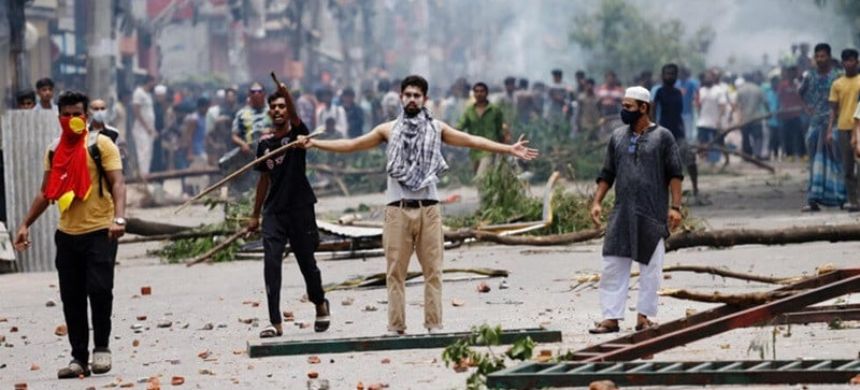Bangladesh’s Supreme Court was set to rule on Sunday regarding the controversial civil service hiring quotas that have sparked nationwide protests and violent clashes, resulting in 133 deaths. The unrest, which began over perceived politicization in job quotas for coveted government positions, has escalated into some of the worst violence seen during Prime Minister Sheikh Hasina’s tenure.
Soldiers have been deployed across cities following the failure of riot police to restore order, and a nationwide internet blackout since Thursday has severely restricted information flow. The Supreme Court’s ruling on whether to abolish the quotas is anticipated, but given the severity of the unrest, even a favorable verdict may not ease the intense public anger.
Protests, particularly in Dhaka, have evolved beyond demands for changes to the quota system to calls for the resignation of Hasina’s government. The quota system, which reserves over half of civil service positions for specific groups, including children of war veterans, is criticized for benefiting families loyal to Hasina and exacerbating employment issues for young graduates.
Rights groups accuse Hasina’s government of using state power to suppress dissent and entrench its rule, with recent comments likening protesters to wartime collaborators inflaming tensions further. The ongoing violence has prompted the US State Department to warn against travel to Bangladesh and begin evacuating some diplomats and their families.











